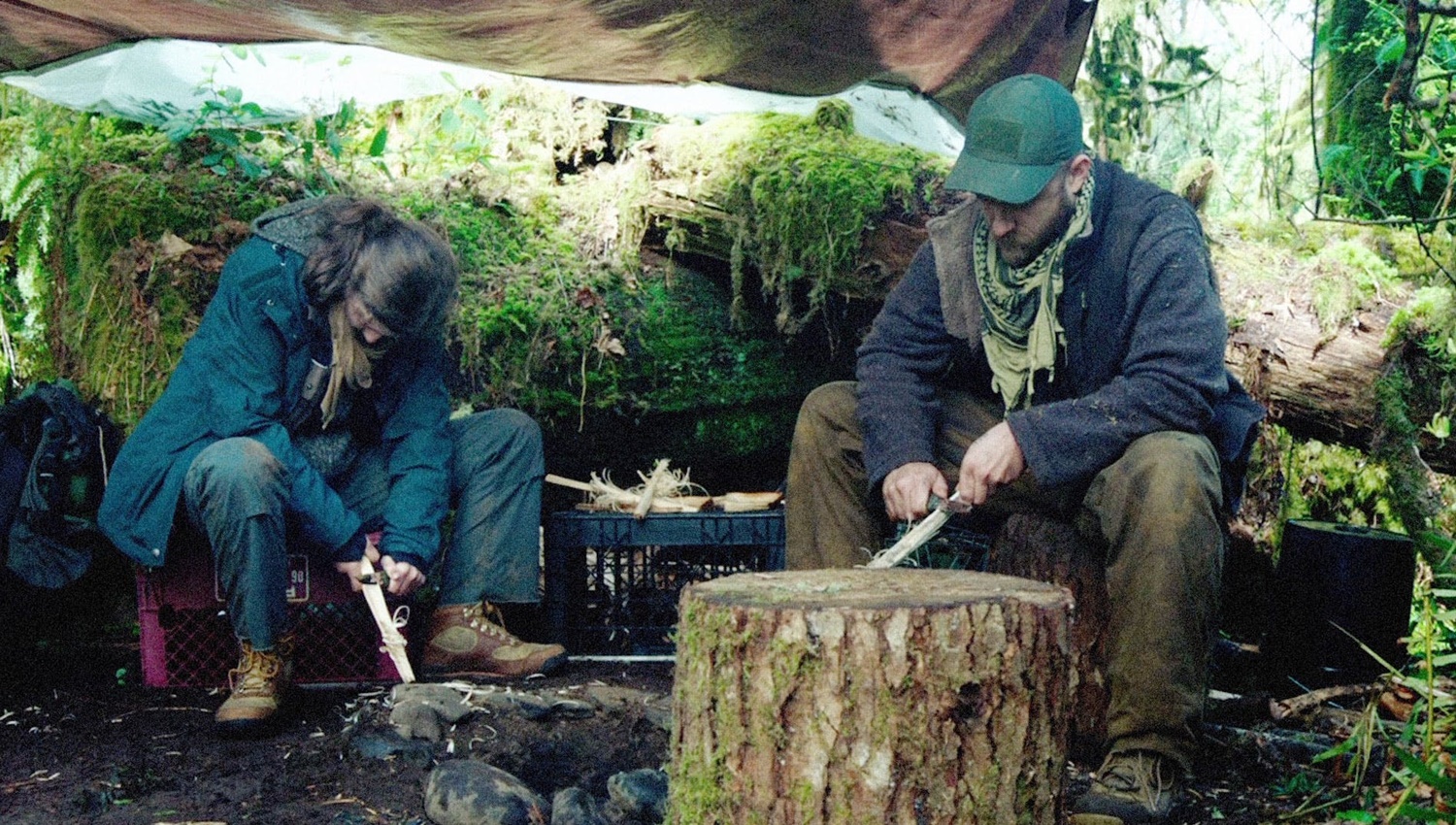
Leave No Trace
Dustin Chase
The struggle is real in “Leave No Trace.” It’s another indie film from a child’s perspective, facing uncertainty from parental and societal nurturing. “Leave No Trace” doesn’t exude that kind of crowd pleasing energy that it’s wilderness cousin “Captain Fantastic” captured and captivated audiences with. “Leave No Trace,” Debra Granik’s subtle drama doesn’t cover any new ground narratively and has familiar strands to recent “Lean on Pete,” “The Rider,” or even “Hanna,” from a few years ago. Ben Foster’s performance is understandably restrained due to the delicacy of his character’s disability, but that leaves the audience without many emotional or dramatically charged scenes to hang their feelings on.
We find teenage Tom (McKenzie) and her father Will (Foster) living in the woods outside Portland. It appears they have been living this way for most of their lives, though the story offers little explanation as to how they arrived in their current state. Their most recent campsite, complete with water, shelter, food storage and a garden, is unfortunately on city property and the father-daughter duo is ultimately discovered by a jogger. They are kindly processed by the system, trying to determine what’s best for Tom. They are provided housing and a life similar to what they had in the woods, only with a roof and a job. This doesn’t work for Will, whose post-tramatic nightmares of war keep him paranoid and yearning to stay on the move.
Other reviews tout this film as brilliant, but there is much left to be desired, and better Ben Foster performances in other films.
“Leave No Trace” is more of a situational film that it is one that offers award winning performances, cinematography or a complete cinematic package. Granik’s “Winters Bone” really put her and Jennifer Lawrence on the map back in 2010. Granik failed to seize her moment and now it feels like we are discovering her again for the first time. McKenzie’s performance is solid but not on the level of what Lawrence accomplished. Foster (“Hell or High Water”) steps out of his usual complex villain role and into something that requires him to deliver a polar- opposite performance.
The way Tom is written as mature, knowledgeable and emotionally stable, I never felt sorry for her if that’s what the filmmaker intended. The empathy in this story is for the father, but I can also understand criticism from colleagues about how many viewers will feel cheated by not understanding the full spectrum of his issues. In only two instances is PTSD hinted at on screen, this story expects the viewer to fill in a lot of holes. Other reviews tout this film as brilliant, but there is much left to be desired, and better Ben Foster performances in other films. Poetic might be a better way to describe “Leave No Trace” than cinematic.
Final Thought
Understanding the filmmakers subtle intentions is paramount for this film to be fully appreciated.
